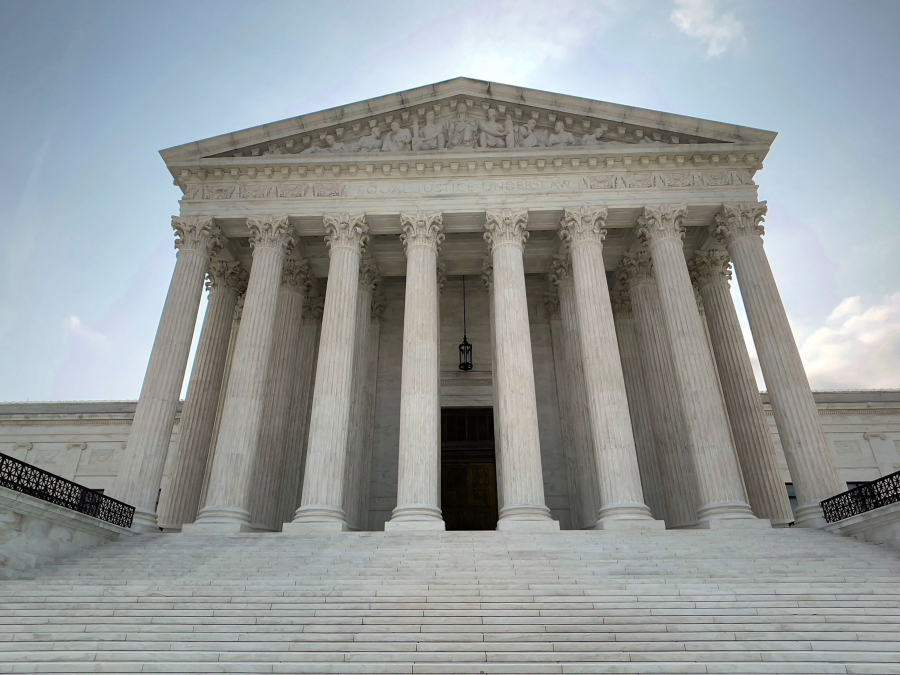In a lawsuit filed last month, Crystal Kemp, a Jehovah’s Witness, alleged that her employer, SEPTA, the regional transit authority based in Philadelphia, refused to adjust her schedule so she could attend religious meetings on Sunday mornings and Tuesday evenings. She alleges she was ultimately terminated for refusing to work during those times.
A former employee of Tastykake in South Philadelphia, James Lynch, sued the company in November. A Muslim and African American employee, he alleges that he faced racial and religious discrimination at work, and that he was “was forced to pray in a janitorial closet” during his five-minute prayer breaks twice per shift.
Byron Love Cooper sued the Germantown Friends School, where he was a housekeeping supervisor, alleging that the school did not accommodate his requests for prayer breaks, and that he faced false accusations of criminal conduct because he was African American and devout Muslim. He was ultimately fired, according to the suit he filed last month.
The employers in these cases haven’t yet responded to the allegations in court, and it remains to be seen how the workers’ allegations will play out legally.
But lawsuits like these could become more common this year, experts say, after a 2023 ruling from the U.S. Supreme Court shook up the standard for how workplaces respond to employees’ religious requests.
Under Groff v. DeJoy, employers now must allow a worker’s religious accommodation unless it would result “in substantial increased costs” for the business, SCOTUS ruled.
Accommodating workers’ religious beliefs rarely requires much of the employer, said Chad Dion Lassiter, executive director of the Pennsylvania Human Rights Commission, which enforces state antidiscrimination laws. So it’s “disturbing” when managers refuse to do so, Lassiter said.
“It doesn’t take away from the workday, allowing a person to embrace the Sabbath, to embrace Passover, to embrace Ramadan,” Lassiter said.
Lassiter said workers should know their workplace’s policies and continue to approach their immediate supervisors when they need religious accommodations, or human resources if the supervisor responds in a discriminatory way. If that doesn’t resolve the problem, Lassiter said, filing a complaint with PHRC or the EEOC would be the next step.
“We want employees to recognize they have recourse, that you don’t have to be discriminated against,” Lassiter said.
- What changed for workers who want religious accommodations?
Gerald Groff, a Pennsylvania man and Evangelical Christian, worked for the U.S. Postal Service beginning in 2012, when there was no service on Sundays. When USPS started doing Sunday deliveries for Amazon, Groff refused to work because of the Sabbath. He was disciplined and eventually resigned.
The employment discrimination case, Groff v. DeJoy, ended up at the U.S. Supreme Court last year, changing the standard for when an employer can deny a religious accommodation.
“Most employers thought that bar was pretty low” for denying a religious accommodation, said Eric Meyer, a Philadelphia-based employment lawyer. “It turns out, it’s not.”
Employers unaware of the Groff decision could find themselves facing religious discrimination complaints, said Meyer, a founding partner at Pierson Ferdinand.
An uptick in religious discrimination cases wouldn’t be surprising, said Ryan Allen Hancock, a lawyer at Willig, Williams & Davidson who represents workers in discrimination cases.
“It’s probably more of an attractive process to plaintiffs’ lawyers,” Hancock said. “The legal test has been changed to the benefit of the employees.”
- What should employers do?
Lassiter, of the PHRC, said diversity, equity, and inclusion training remains important. Reducing DEI efforts within organizations and companies, whether for budget reasons or because of recent conservative backlash against DEI, is “definitely a mistake,” Lassiter said, and he suspects it will lead to “a plethora of lawsuits.”
“Everyone who’s in leadership should be fully aware of what management directives say as it relates to religious freedoms in the workplace,” Lassiter said.
Meyer, the employment lawyer, noted that supervisors and managers are often the first to receive religious accommodation requests, so it’s important for employers to educate them, and human resources staff, about the changes.
But the definition of “substantial increased costs” isn’t fully fleshed out in the Groff case, labor lawyer Hancock noted, so it will likely take several years of workers filing cases in court for a new test to take shape, he said.
An example of factors that may be considered is worker shortages.
“If you don’t have enough people to get the work done, you might not be able to make as many accommodations,” Meyer said. “If other employees are going to be resentful and work less and not be as productive, that can be quantified as a cost to the company.”
But Lassiter, of the PHRC, contends that accommodating workers’ religions can help a workplace be more productive. Employees will want “to go the extra mile” when employers “recognize their full humanity.”
“We want to embrace and accommodate and highlight the beauty of people who have a faith as well as people who don’t have a faith,” Lassiter said. Even at work, “there is an aspect of faith that drives what people do.”



